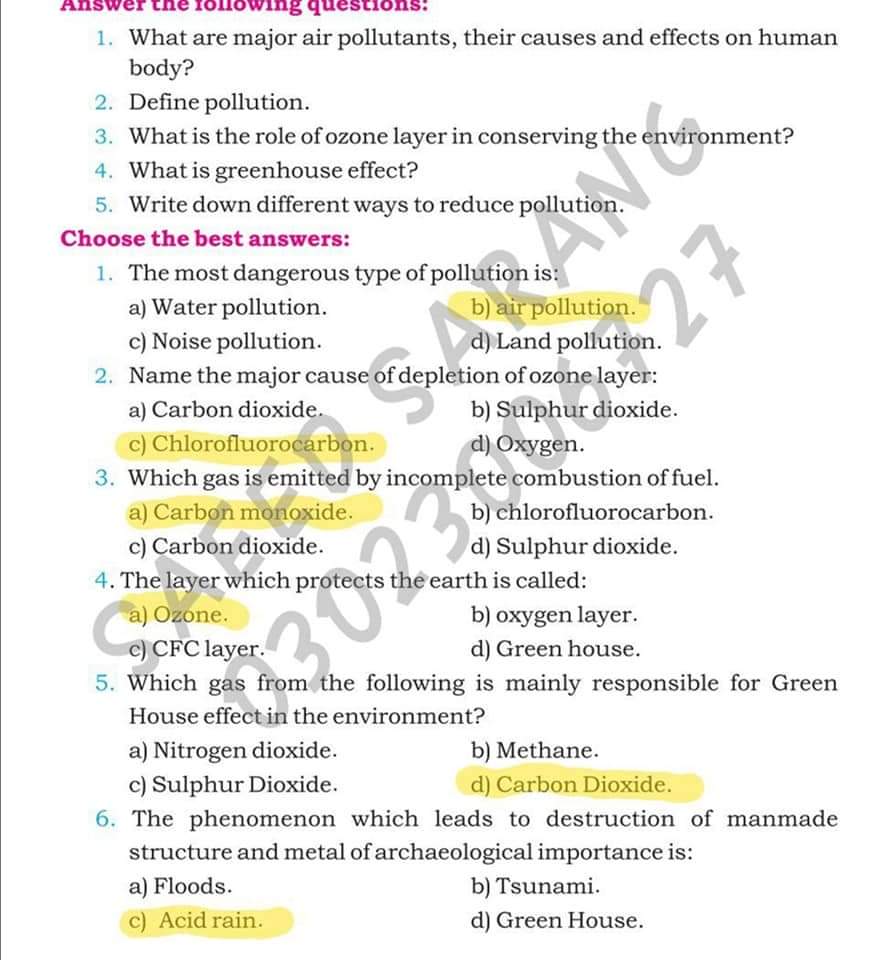General Science Solved MCQs Notes for IBA STS Sindh Teaching Jobs
General Science Solved MCQs notes are considered as mandatory part of Sindh Education jobs tests.
Usually, IBA testing service STS (SIBA Testing Service) conducts most of the Sindh Education department jobs.
According to the past papers, General Science is considered as most important subject for the teaching and non-teaching jobs in Sindh.
Therefore, We have prepared solved General Science MCQs from Class 8 Sindh Board Textbook.
Introduction
IBA STS conducted MCQs tests for the teaching jobs such as Primary School Teacher (PST), Junior Elementary School Teacher (JEST) and IBA will also conducts upcoming tests of Early Childhood Teacher (ECT), Matric Category test, and Junior Science Teacher (JST) in Sindh education department.
Usually, these job tests include General Science MCQs from Sindh Board Class 8 General Science Textbook Exercise.
Previously, IBA conducted PST JEST tests in September 2021. Students should follow PST JEST Past Papers to qualify IBA Junior Science Teacher (JST), ECT and IBA Matric Category bpas 5 to 15 test.
NOTE: We have created a separate category under name “IBA NOTES“, where we uploads IBA Past Papers and Notes on daily basis. Recently, We have uploaded IBA ECT Jobs Past Papers and Official Syllabus.
General Science Class 8 Solved MCQs Exercise from Sindh Textbook
Here is the complete solved MCQs exercise from the General Science Class 8 Sindh Board Textbook.

1. A quantity that can be measured is called:
a) Physical quantity
b) measurable quantity
c) Standard quantity
d) it depends on temperature

2. Which of the following units is a fundamental unit?
a) Newton
b) Second
c) Watt
d) Joule

3. When a standard is set for a quantity then standard quantity is called:
a) amount
b) rate
c) prefix
d) unit

4.. What is the correct order, in increasing size, for the measurement of length?
a) kilometre, centimetre, meter.
b) meter, centimetre, millimetre.
c) millimetre, centimetre, meter.
d) millimetre, meter, centimetre.

5. A mass of 4 kg is equal to
a) 4000mg
b ) 4000g
c) 400g
d) 40g

6. 0.05 kilometres is equal to
a) 50cm
b) 5000m
c) 15m
d) 50m

7. 10 seconds is called as
a) microsecond
b) nanosecond
c) macro second
d) millisecond

8. The unit of electric current in the SI system is
a) Ampere
b) Kelvin
c) second
d) coulomb







From Now, We are starting a series of Sindh Public Service Commission SPSC Lecturer notes and past papers. Along with Punjab Public Service Commission PPSC Past Papers and Notes on: spscexpress.blogspot.com

9. Cubic meter is a unit of
a) Volume
b) Length
c) Area
d) Mass


10. A measuring cylinder is used in laboratories for measuring
a) mass
b) weight
c) temperature
d) volume
IBA Screening Test is divided into three categories. We have already uploaded the IBA Screening Test official syllabus on our websites.
Frequently Asked Questions (FAQs)
Q1: What type of General Science questions are asked in the IBA STS Sindh Teaching Jobs test?
The IBA STS test includes questions from basic Physics, Chemistry, Biology, and Everyday Science. Most questions are conceptual and taken from Sindh Textbook Board books (Classes 6–10).
Q2: How can I download General Science Solved MCQs Notes for IBA STS Sindh Teaching Jobs?
You can download topic-wise General Science solved notes and practice MCQs from this page. These notes help candidates preparing for PST, JEST, and other BPS-05 to 15 category tests.
Q3: Are these General Science MCQs useful for other competitive exams?
Yes, these solved MCQs are also helpful for FPSC, PPSC, SPSC, and other general recruitment tests conducted by IBA STS, NTS, and OTS.
Q4: What is the best way to prepare for the IBA STS Science section?
Focus on understanding basic scientific concepts from Sindh Textbooks, memorize key facts, and solve past paper MCQs regularly to improve speed and accuracy.
Q5: Which topics should I focus on for the IBA STS General Science paper?
Concentrate on:
- Human Body and Diseases
- Solar System & Planets
- Basic Physics (Force, Motion, Energy)
- Chemistry (Elements, Compounds, Mixtures)
- Everyday Science & Technology